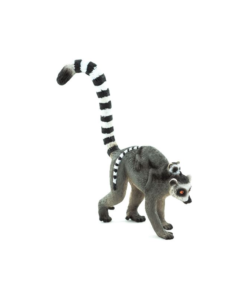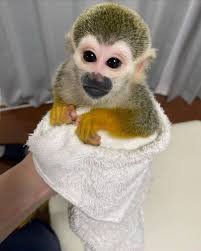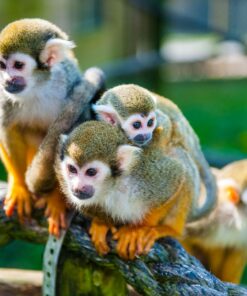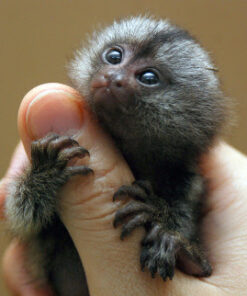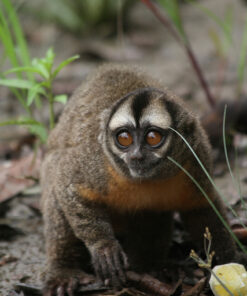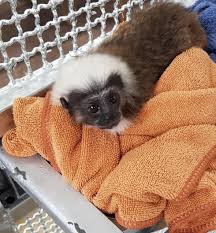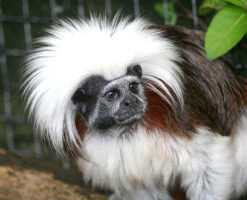Monkeys For Sale
Monkeys are a diverse group of primates belonging to the infraorder Simiiformes, which includes New World monkeys (Platyrrhini) and Old World monkeys (Cercopithecoidea). Owl Monkeys for sale, They are found in various habitats across the world, primarily in tropical and subtropical regions. Here’s a detailed overview of monkeys, their characteristics, behavior, habitat, and conservation status: Monkeys For Sale
Classification and Types
New World Monkeys (Platyrrhini)
Location: Found in Central and South America.
Families: Includes families such as Callitrichidae (marmosets and tamarins), Cebidae (capuchins and squirrel monkeys), Aotidae (night monkeys), Pitheciidae (titis, sakis, and uakaris), and Atelidae (howler, spider, and woolly monkeys).
Old World Monkeys (Cercopithecoidea)
Location: Found in Africa and Asia.
Families: Primarily includes the family Cercopithecidae, which is divided into two subfamilies: Cercopithecinae (baboons, macaques, and vervet monkeys) and Colobinae (colobus monkeys, langurs, and proboscis monkeys).
Physical Characteristics
Size and Appearance
Monkeys vary greatly in size and appearance. The smallest monkeys, like the pygmy marmoset, weigh around 100 grams (3.5 ounces), while larger species, like the mandrill, can weigh up to 35 kilograms (77 pounds). Buy Ring-tailed lemur Monkey
They have a wide range of fur colors and patterns, including browns, blacks, whites, reds, and various combinations.
Tail
Many monkeys have long tails, which are often prehensile in New World monkeys, helping them grasp branches. Old World monkeys have tails that are generally not prehensile.
Facial Features
Monkeys typically have expressive faces with features adapted to their environment. Some have pronounced muzzles, while others have flat faces.
Behavior and Social Structure
Social Groups
Monkeys are highly social animals that live in groups, known as troops or bands. Group size can range from a few individuals to several hundred.
Social structure varies, with some species having strict hierarchies led by dominant individuals, while others have more egalitarian structures.
Communication
Monkeys communicate using a variety of vocalizations, body language, facial expressions, and grooming behaviors.
They use specific calls to warn of predators, signal food sources, or maintain social bonds. Buy Squirrel Monkey
Reproduction
Reproductive behaviors vary widely. Some species have distinct breeding seasons, while others breed year-round.
Gestation periods also vary, with smaller species having shorter gestations (around 4-6 months) and larger species having longer gestations (up to 8 months).
Habitat and Diet
Habitat
Monkeys are primarily arboreal, living in trees, but some species are terrestrial.
They inhabit a range of environments, including tropical rainforests, savannas, mountains, and urban areas.
Diet
Monkeys are omnivorous, with diets that include fruits, leaves, seeds, insects, and small animals. Some species specialize in particular types of food, such as colobus monkeys that primarily eat leaves.
Conservation Status
Threats
Habitat destruction due to deforestation, agriculture, and urbanization is a major threat to many monkey species.
Hunting and illegal wildlife trade also pose significant threats.
Conservation Efforts
Numerous conservation programs and protected areas have been established to preserve monkey habitats and promote their conservation. Buy Tamarin Monkeys
International regulations, such as CITES (Convention on International Trade in Endangered Species of Wild Fauna and Flora), aim to prevent illegal trade.
Monkeys as Pets
Legal and Ethical Issues
Keeping monkeys as pets is regulated or prohibited in many regions due to their complex social and environmental needs.
Monkeys require extensive care, and keeping them in captivity can lead to behavioral issues and poor welfare.
Care Requirements
Monkeys need large, enriched environments that provide physical and mental stimulation.
They require a specific diet and social interaction with other monkeys to thrive.
Conclusion
Monkeys are a diverse and fascinating group of primates with complex social behaviors and adaptive traits. Capuchin Monkey For Sale, While they play important roles in their ecosystems, many species face significant threats from human activities. Conservation efforts are essential to protect their habitats and ensure their survival. Marmoset Monkeys For sale, For those considering keeping monkeys as pets, it is important to understand the legal, ethical, and practical challenges involved in providing proper care for these intelligent and social animals.



